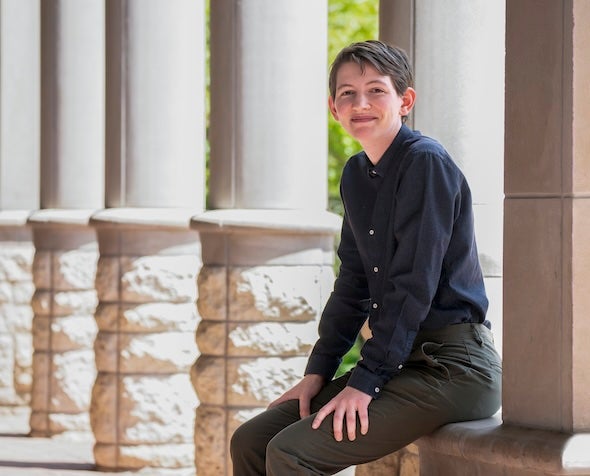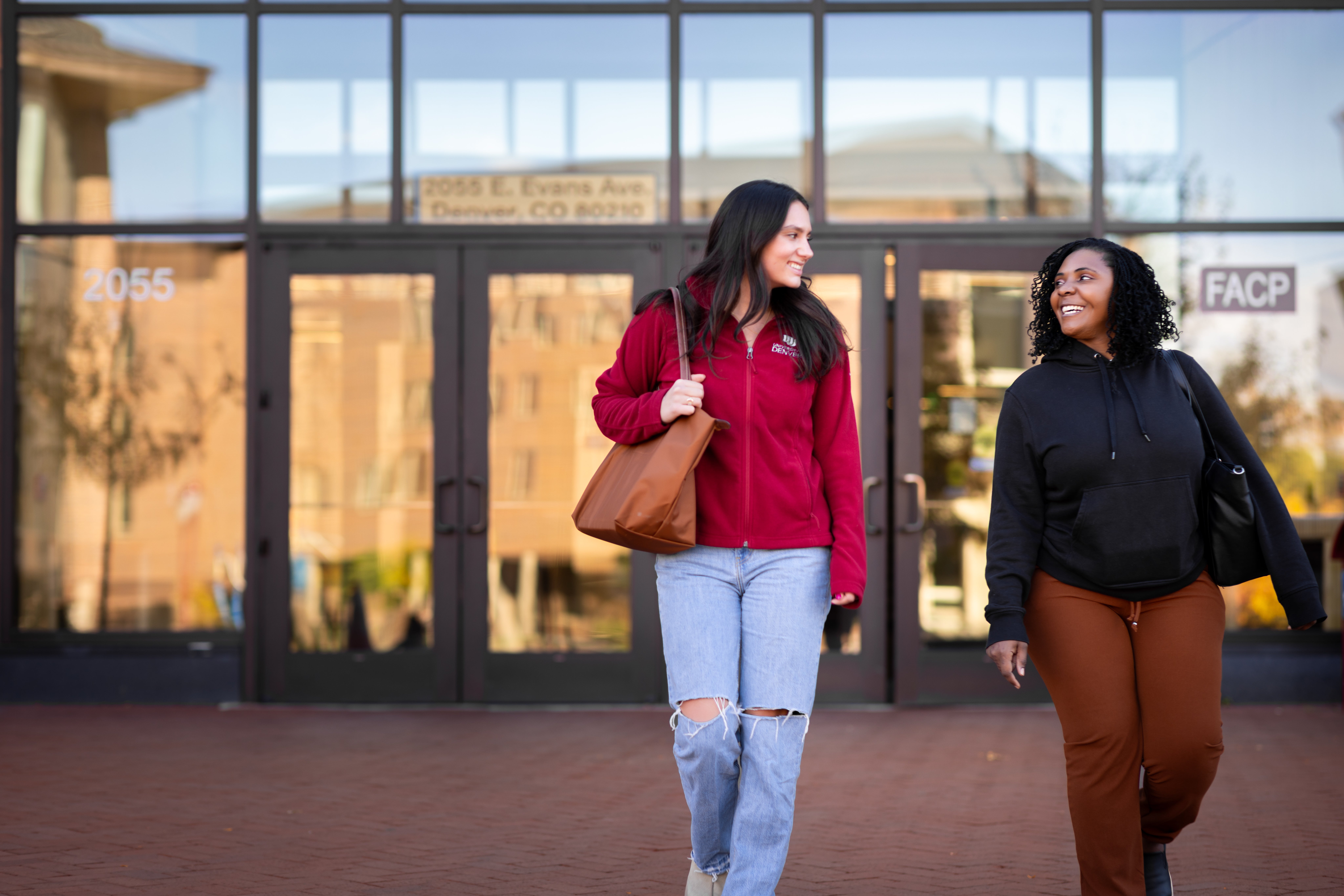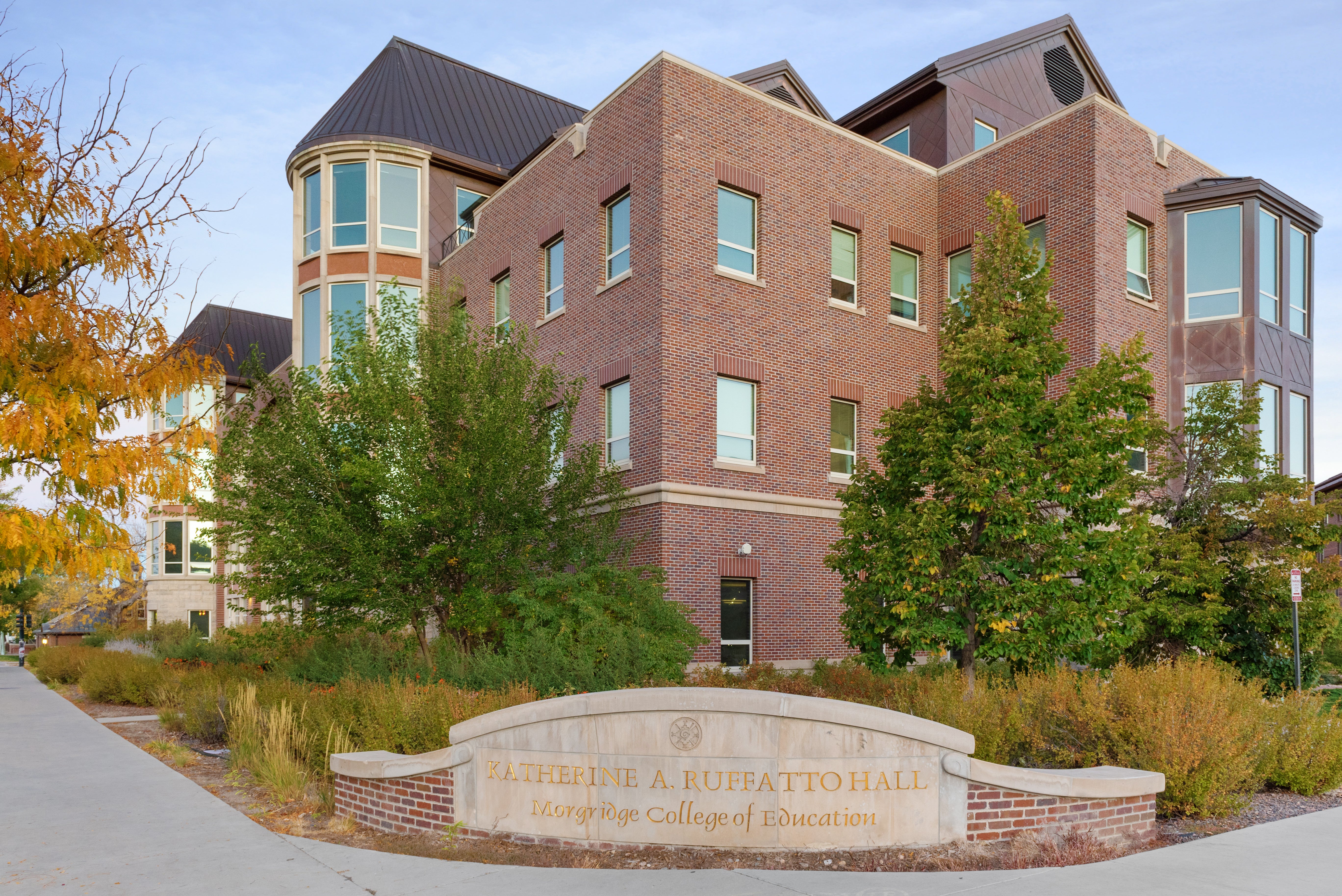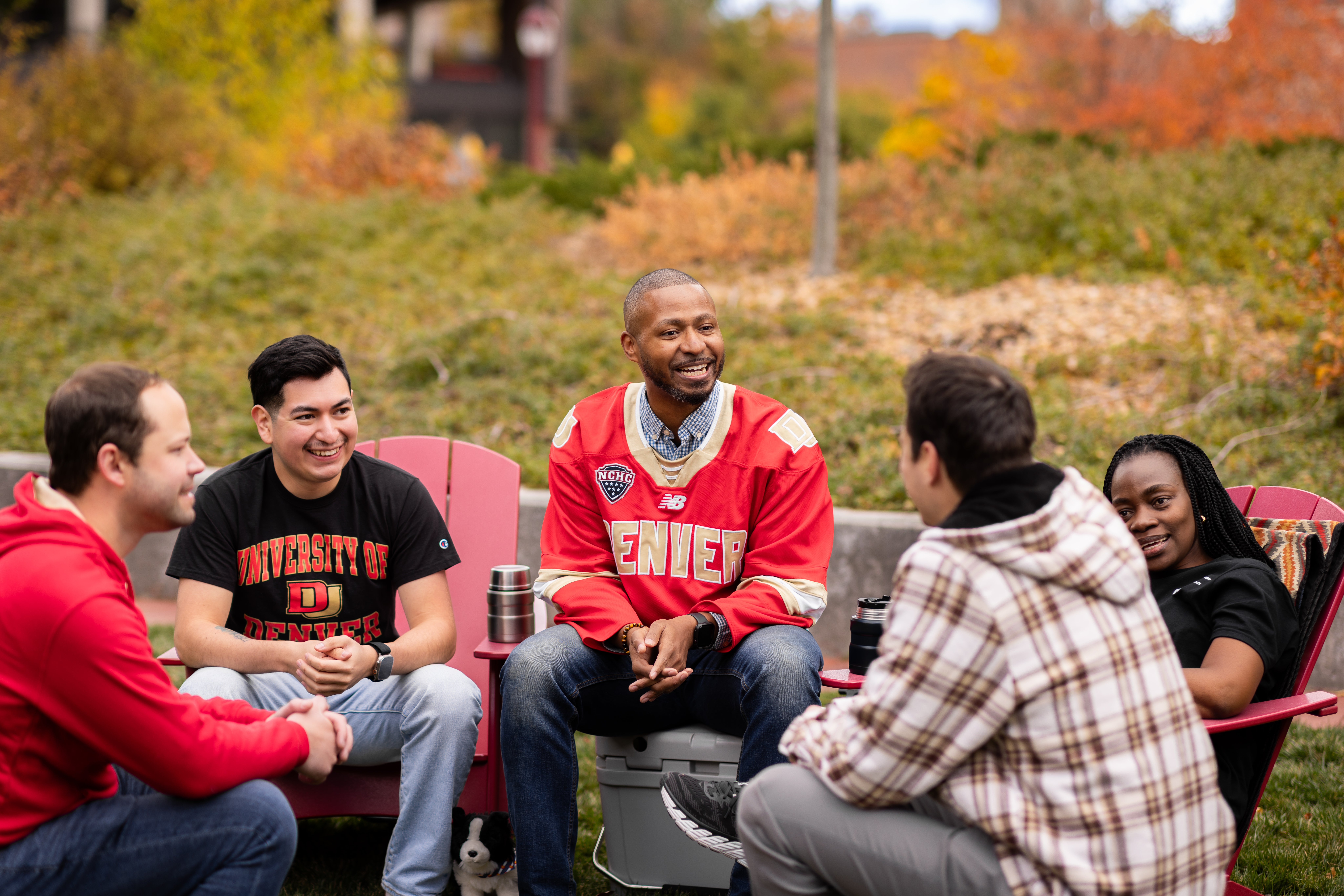Redemption Through Research
A PhD student’s award-winning journalism project shows how local media bias fuels systemic racism.
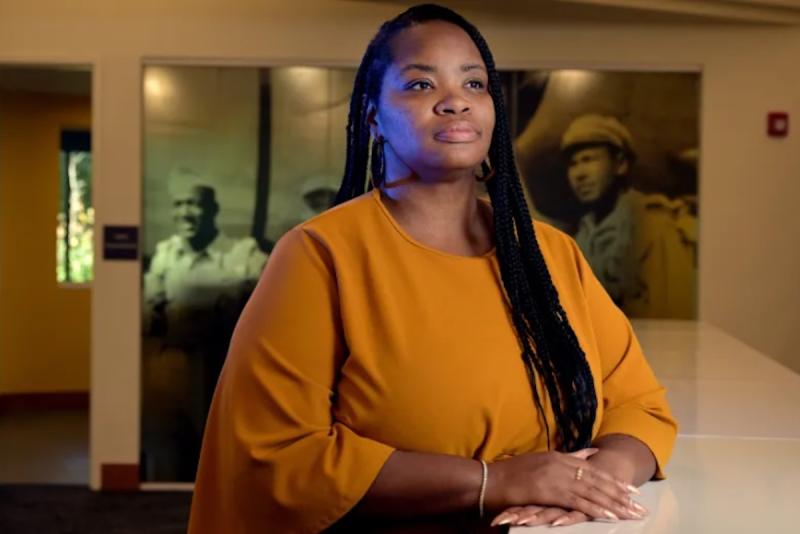
Jameka B. Lewis, PhD candidate in Morgridge College of Education.
In 1966, a social movement started in Oakland and quickly spread across the country. Born out of a response to police brutality, it sought to protect and empower Black communities. The group leading the movement sponsored various initiatives such as a free breakfast program for thousands of school children. Local chapters provided their communities with transportation, clothing, healthcare and legal services. The Black Panther Party for Self Defense had an overwhelmingly positive impact, yet it was portrayed by most media outlets in a consistently negative light.
Jameka B. Lewis, who is now a PhD candidate in the University of Denver’s Morgridge College of Education, delivered a presentation on this disparity to the Denver Press Club in 2021. In her role as a senior librarian at the Blair-Caldwell African American Research Library, located in Denver’s Five Points neighborhood, Lewis had an opportunity to read a box of Black Panther newspapers from the 1960s and ’70s. Her presentation juxtaposed how the Panthers wrote about themselves with how they were covered by other Denver-area newspapers. Lewis highlighted one paper in particular: The Golden Transcript ran more stories about the Panthers than any other Colorado publication.
“I found that baffling,” she says. “Golden did not have a Black Panther chapter, and their population was predominantly white.”
The Golden Transcript’s coverage of the Black Panthers was exclusively negative, deploying words like “thugs” and “militant.” As Lewis noted in her presentation, it provided a glaring example of how media bias can perpetuate systemic racism. Unbeknownst to Lewis, Linda Shapley, the publisher of Colorado Community Media, which now oversees The Golden Transcript, was in the audience.
A collaborative project for change
After the presentation, Shapley introduced herself. “I think we have a lot to talk about,” Lewis recalls Shapley saying. Their initial conversation led to a constructive ongoing dialogue. A few months later, they submitted a grant proposal to the Colorado Media Project and received funding to research The Golden Transcript’s historical coverage of the Black Panther Party and analyze its effect on the Black community in Denver and Colorado.
An researcher and historian, Lewis was in charge of reviewing The Transcript’s archives. The paper’s current reporters were tasked with going into the community and interviewing Black residents about their memories of the coverage. Before they started their field work, Lewis requested that the reporters—all of whom were white— complete equity and anti-bias training.
“The overall goal of the project was to examine how media bias contributes to systemic racism,” Lewis says. “The secondary goal was for this to be a training tool for reporters and folks that work in news as far as how coded language works.”
In February 2023, The Golden Transcript published its findings in a special report. Lewis’ research revealed that between 1969 and 1971, the paper ran roughly 170 articles about the Black Panthers, all of which presented the group in a negative light. The reporters she collaborated with helped illuminate the effects of such biased, fear-mongering coverage. One woman who grew up in Denver in the 1960’s offered this characterization of the media’s underlying message: “Be afraid of Black people.”
The project sparked important conversations about the impacts of media bias on the Black community and won first place in Social Justice Reporting Award from the Society of Professional Journalists and the 2024 Top of the Rockies Excellence in Journalism competition.
“I’ve always been taught that good research inspires more good research,” Lewis says. “To me, there’s just so much more that can be done when we talk about this.” As a student in Morgridge’s Curriculum and Instruction program, Lewis finds herself in an ideal space to advance this work.
“I’ve had so many professors who’ve encouraged my radical ideas,” she says. “I knew that the program had a very strong social justice component, but I did not expect to be able to freely voice my controversial opinions or talk about my sometimes difficult journey as a Black librarian and historian. I didn’t expect to see the kind of support and encouragement I’ve received. It’s refreshing that I’m being encouraged to explore things that will have an impact.”
A dissertation idea is born
Although Lewis completed her research for The Golden Transcript project before starting at DU, she is exploring pathways to expand the work into a dissertation proposal. She has become fascinated with the concept of “newspapers as curriculum,” an idea she credits Morgridge professor Paul Michalec with helping her develop. Lewis is interested in exploring how newspapers, especially before social media, have been used as tools to shape societal views on different groups and issues, particularly to advance narratives of white supremacy.
If she pursues this subject as a dissertation, Lewis hopes to help change the narrative surrounding the Black Panthers.
“What I would want to see is that the Panthers and their stories receive the kind of positive attention that they should, and that people see the value in what they did and the impact that they had,” Lewis says. “Redemption is what I want from this.”
